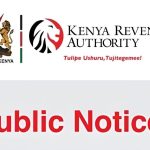Executive Summary
Recent landmark rulings by the Kenya Tax Appeal Tribunal (TAT) have determined that the Kenya Revenue Authority (KRA) cannot enforce migrated “legacy” tax balances that are beyond the five-year statutory limitation period for assessments.
Additionally, the Taxpayers are not required to provide decade-old documents. These decisions promote certainty, procedural fairness, and timely reconciliation within Kenya’s tax administration. Taxpayers are encouraged to review their i-Tax accounts and seek professional advice where needed.
These decisions offer taxpayers a strong legal defense against KRA demands for time-barred historical tax debts. The rulings affirm that the KRA must operate within statutory limits and uphold legal certainty in tax administration.
While the KRA began the migration in February 2020 and set a deadline for taxpayer concerns, the recent TAT rulings significantly restrict the KRA’s ability to enforce demands for periods beyond the five-year limit, unless fraud or willful neglect can be proven.
1. Background and Context
The Kenya Revenue Authority (KRA) commenced a reconciliation exercise in February 2020 to migrate taxpayer account balances from its old Legacy system to the iTax platform, which replaced the manual system in 2014.
In a public notice issued in July 2024, the KRA announced the successful migration of all Legacy balances to taxpayers’ iTax accounts. It emphasized that the migrated debit balances did not constitute new tax assessments but rather reflected existing obligations under the old system.
Taxpayers were given until 31 December 2024 to raise queries or submit supporting documents concerning these balances. Any unresolved balances after the deadline would be confirmed and demand notices issued.
However, this migration triggered disputes where taxpayers challenged the legality of enforcing long-standing Legacy balances, particularly those older than the statutory time limit for tax assessments.
2. The Tribunal’s Key Rulings
The Tax Appeals Tribunal is a quasi-judicial body established under the Tax Appeals Tribunal Act, 2013, to resolve disputes between taxpayers and the Kenya Revenue Authority.
Recently, the Tax Appeals Tribunal (TAT) issued significant decisions in two related cases—
- Sony Holdings Limited v. Commissioner Domestic Taxes (Tax Appeal No. E1217 of 2024)
- Diocese of Nyeri Trustees v. Commissioner of Legal Services and Board Coordination (Tax Appeal No. E1147 of 2024)
In both cases, the Tribunal found that attempts by the KRA to enforce Legacy balances as tax assessments after more than five years were unlawful, and that taxpayers could not be required to produce records older than five years.
A. Sony Holdings Limited v. Commissioner Domestic Taxes (Tax Appeal No. E1217 of 2024)
Sony Holdings Limited received a demand notice from the KRA claiming KES 201 million in VAT relating to 2009, 2010, and 2012 periods. These amounts were drawn from the migrated Legacy balances.
Sony Holdings’ Position:
- The demand was based on unverified balances, not a valid tax assessment under the Tax Procedures Act (TPA)
- Under Section 31(4) of the TPA, amendments to self-assessed returns are limited to five years unless fraud or tax evasion is alleged.
- Sony had repeatedly provided supporting documents, but KRA failed to act within the statutory 60-day period.
KRA’s Position:
- The balances were not new assessments and could not be appealed.
- The taxpayer should have sought relief through the Amnesty Framework (Section 37E of the TPA).
- Claimed that no formal tax decision existed, thus the Tribunal lacked jurisdiction.
Tribunal’s Determination:
- The KRA’s objection decision dated 13 September 2024 was valid and appealable under the TPA.
- The Amnesty Framework was inapplicable as it applies only to undisputed taxes.
- The VAT claims were time-barred and any attempt to revise self-assessments after five years was unlawful.
- The Tribunal allowed Sony Holdings’ appeal but ordered that the balances be remitted back to KRA for reconsideration, reconciliation, and validation within 60 days.
B. Diocese of Nyeri Trustees v. Commissioner of Legal Services and Board Coordination (Tax Appeal No. E1147 of 2024)
On 25 June 2024, KRA informed the Diocese of Nyeri that a VAT liability of KES 8.6 million had been migrated from the Legacy system to iTax. The Diocese objected, and KRA confirmed the liability on 13 September 2024.
Diocese’s Position:
- The demand was time-barred, relating to periods between August 2011 and December 2014, well beyond the five-year limit.
- KRA failed to issue a notice of amendment, denying an opportunity to object.
- The demand lacked specificity and the public notice on migration was issued after the demand, making the process unfair.
- The Diocese was not required to retain documents beyond five years.
KRA’s Position:
- The migrated balances were not new assessments and could not be appealed.
- The Diocese should have pursued internal revalidation.
- Claimed no formal decision existed; thus, the Tribunal lacked jurisdiction.
Tribunal’s Determination:
- The objection decision of 13 September 2024 was valid and appealable.
- The VAT liability was time-barred, exceeding the statutory limit.
- The Diocese was not required to produce records older than five years.
- The public notice was issued after the demand notice, violating fair administrative action.
- The Tribunal found KRA unjustified in confirming the Legacy balances
3. Implications and Takeaways
- Statutory Limitation Reinforced: KRA cannot amend or enforce tax assessments beyond five years unless fraud or evasion is proven
- Record Retention: Taxpayers are not obligated to maintain documents older than five years.
- Procedural Fairness: KRA must follow due process and avoid retrospective actions.
- Taxpayer Protection: This reinforces protection to Taxpayers against retrospective enforcement.
- KRA Accountability: This highlight delays by KRA in resolving Legacy migration issues.
- Potential Appeals: KRA may appeal both rulings to the High Court; otherwise, these set a binding precedent.
4. Conclusion
Taxpayers are encouraged to review their iTax accounts and seek professional advice where needed.
The TAT’s rulings in the Sony Holdings and Diocese of Nyeri cases affirm that migrated Legacy balances cannot be enforced as tax assessments after the statutory five-year limit.
Taxpayers are not required to provide decade-old documents. These decisions promote certainty, procedural fairness, and timely reconciliation within Kenya’s tax administration.






